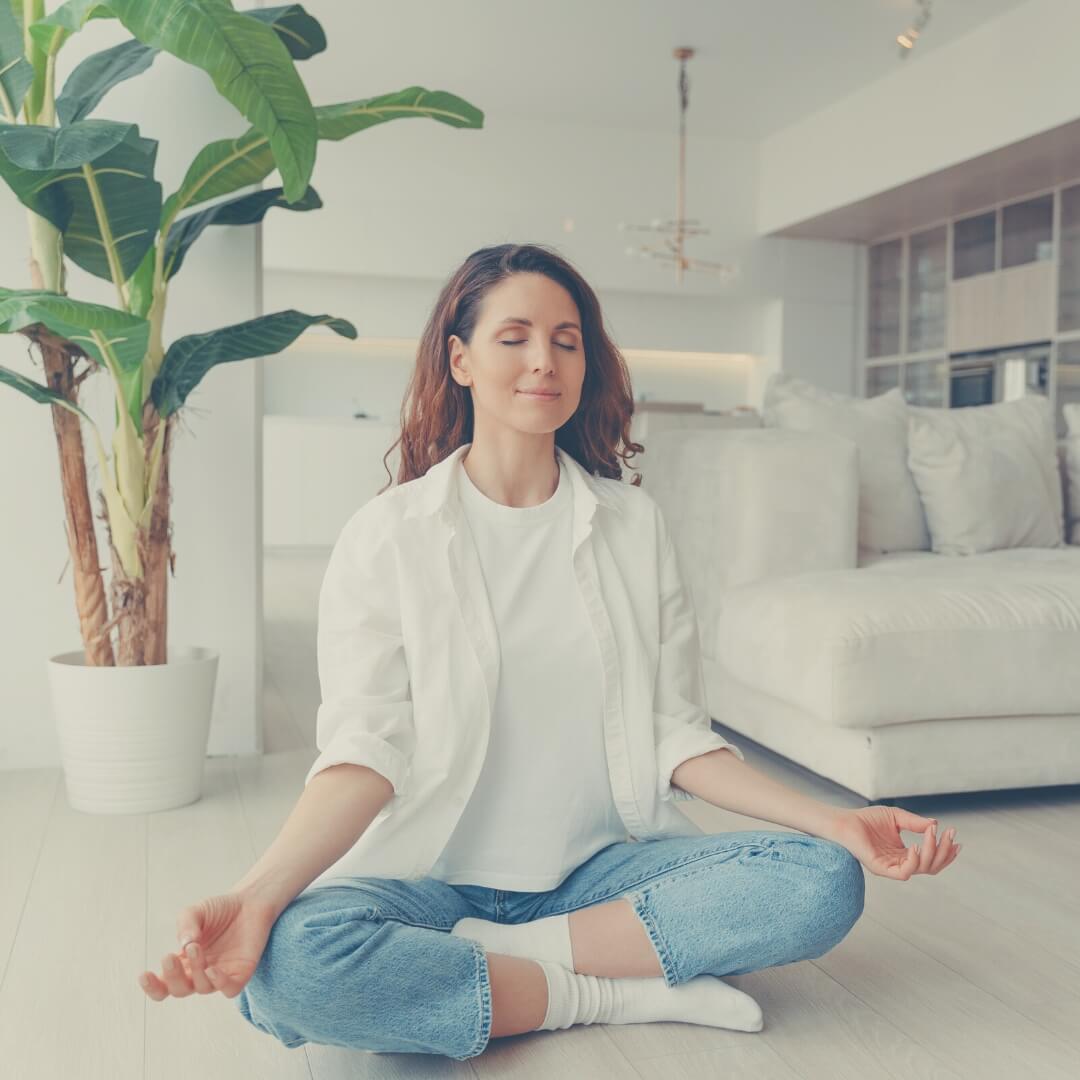Humans are social beings, or so we’ve come to learn. Yet, psychologist Carl Jung found a way to figure out why one group of people has a tendency to be more social than others.
The less socially-inclined group is called introverts, while those who are more outgoing are called extroverts. According to VeryWellMind, introverts make up an estimated 25% to 40% of the population.
I am introverted. And there’s a chance you may fall into this bracket if you can identify with the signs of introvert.
After explaining in more detail what an introvert is, I’ll walk you through the core differences between introverts vs extroverts. Next is to look at how having an introverted personality can work for and against you.
What Is an Introvert?
An introvert is an individual who displays introverted personality traits. These traits are the polar opposite of those seen in people who have extroverted personality traits.
The core differentiating trait of introversion is the ability to get stimulation from internal rather than external sources. Call it different survival strategies, if you will. In other words, unlike extroverts, introverts don’t necessarily need people around or social excitement to feel alive.
These individuals are preoccupied with their thoughts, feelings, and moods. Their tendencies can lead them to develop a greater sense of self-awareness and emotional intelligence.
However, preferring to stay to themselves does not mean they are socially anxious or shy. Some introverted individuals enjoy partying and having a great time.
Introvert vs Extrovert Differences
Introversion and extroversion are terms that refer to how an individual gets their energy. Is it an external or internal source?
Extroverts are defined as gregarious or very outgoing people, whereas introverts tend to be socially isolated. Extroverts direct their focus outward to their environment and draw energy from connecting with people.
Even though these are two opposing personality types, there is a gray area. A person can be more introverted than extroverted based on a scale or spectrum that measures their traits from low to high.
They will exhibit both types of personality traits. Based on the degree, they will lean more introverted or more extroverted. It all depends on which characteristics dominate the most.

Myer and Briggs later developed Carl Jung’s theories of introversion and extroversion and came up with 16 personality types. Eight falls under introverted and the other eight under extraverted. I have an Intuitive Sensing Thinking Judgment (ISTJ) personality type based on my personality profile report.
You can take the Myer & Briggs Personality Inventory to get your profile. Jung’s personality theories also influenced other personality theories such as the big 5 personality traits… both are great places to start your journey of self-discovery.
Type of Introverts
Introverts come in various flavors. A STAR model of introversion was developed by psychologist and researcher Jonathan Cheek, Ph.D. According to the model, there are four types of introverts: social, thinking, anxious, and inhibited. The behavior of each type is motivated by unique preferences.
17 Signs of Introvert You May See in Yourself
Your introverted side may be more dominant than your extroverted side if you check “Yes” next to most or all of the signs of introvert below. If the opposite is true for you, then you’re more likely to be an extrovert.
#1. Enjoy Solitude
Introverts feel more alive and happier in quieter environments. After all, silence is quite stimulating. At last, they get a chance to spend time with themselves to reflect and recharge. The venue could be their room or a quiet spot in a nearby park.
During this time, they are also processing information and making important decisions. They have trouble focusing in noisy environments and are able to concentrate better in solitude.
Many introverts journal their thoughts, ideas, and plans, as opposed to expressing them to others. Check out the 9 Benefits of Being Alone and Doing Things on Your Own.
#2. Happier and More Energized by Aloneness
Extroverted people find it mysterious that introverts can get excited and experience a higher sense of well-being all by themselves. As an introvert, you’re a one-man band and thrive on being alone. You create your space in a way that provides an air of peace and tranquility.
There aren’t many dull moments in your world. Contrary to what others think, you’re not bored being alone, feeling lonely, or depressed.
In your zone is where all the magic happens, whether it’s your professional work or a passion project you’re working on. Solo time is far more motivating. Somehow, you manage to get greater clarity and are more productive in a quieter environment.
#3. Having Too Many People Around Feels Draining
Introverts tend to have a lot of energy although it may not appear so at a glance. At the same time, they get easily drained from dealing with too many people at the same time. Interacting for an extensive period of time zaps their energy at lightning speed.
This is one of the reasons I don’t normally host social gatherings, such as dinners and birthday parties, at my home. I feel empty and regretful after everyone leaves. In fact, at the height of the festivities, I am silently wishing everyone would go away. It could be a bit of social anxiety.
In contrast, those who are extroverted gain energy from social interactions. Some even thrive on it.
#4. Need to Recharge After Social Interactions
“People empty me. I have to get away to refill.” The statement by poet and novelist Charles Bukowski sums up how introverted people feel at the end of a social event.
The next day you’ll find yourself withdrawn and suffering from what is called “people exhaustion.” Your phone is on Do NOT Disturb while you spend time alone trying to fuel up on energy.
During your shut-down period, you’re processing the event and putting things in perspective to gain clarity. Introverts function better that way. Days may pass before you start feeling energetic again and ready to deal with people.
The need to get away is often interpreted as being an antisocial trait. Nothing could be further from the truth. Introvert burnout is a real thing!
#5. Prefer Small Groups of Friends
The fact that they revel in their aloneness doesn’t mean introverts avoid social interactions altogether.
They are simply careful of when and how to spend their time and energy. To minimize energy drain, introverts intentionally keep their social circle small and close-knitted.
Usually, those who make the cut are handpicked and trusted individuals they’ve been friends with for a long time.
The select handful of friends and associates might also be introverts or of like minds. Having a small social circle allows them to create strong, meaningful, and long-lasting friendships.
#6. Enjoy “Living in Your Head“
Usually, introverted people appear quiet and reserved. They spend a lot of time reflecting on events and how they acted during the day. People often mistake their lack of talkativeness for shyness or social anxiety.
That may not be the case. “…introverts are thinking inside their heads that no one else gets to hear, extroverts are saying out loud.”
Those words are from Susan Cain, author of the New York #1 Bestseller, Quiet: The Power of Introverts in a World that Can’t Stop Talking. As a result of their talkativeness, extroverts blurt out things they haven’t thought through carefully and end up coming across as shallow.
#7. Deliberate and Intentional
Critics tend to view introverts as boring individuals who have nothing much to offer in social circles. Little do they know, you are wired to live life consciously and on purpose.
Life is happening in slow motion for you and that allows you to experience the things fast-acting people tend to overlook.

Decision-making is also a serious task. You have to think things through several times before speaking or deciding. The approach to decision-making can be both a blessing and a curse.
You sometimes lose out on great opportunities as a result of overthinking things. Then, there are times when your ability to wait before making a move brings you lots and lots of success.
#8. Small Talk is Seen as a Waste of Time
Introverts are, by nature, not chatty unless they know you well. Time is a valuable resource for them and they hate wasting it gossiping or walking around aimlessly just to kill time. They’d rather retreat to their sofa and read a book, watch the news, or do something creative.
I’m usually more psyched to write a script for my next YouTube video than chatting about celebrity trends.
Not only are they reserved, but introverts are also deep thinkers who do things thoughtfully, deliberately, and decisively. They gravitate more easily to people who have profound things to say since intelligent conversations provide opportunities to learn new things.
#9. Don’t Easily Let People In
Extroverts are wide open, in terms of meeting and socializing with just about anyone they encounter. You don’t need to be a friend. Not with introverts. You feel more comfortable with people you know and trust.
For that reason, you find it more challenging to make friends. People who want to befriend you feel like they have to jump over hurdles to get to know you.
Talking to you could feel like pulling teeth. You don’t say much, and when you’re ready to speak, you prefer to talk about interesting topics.
#10. Find Hectic Environments Stressful
Do you find yourself avoiding crowded places or noisy places due to feeling stressed or anxious? If so, you may be an anxious introvert whose brain cannot handle too much external stimulation. Noisy environments cause me to feel stressed, overwhelmed, and agitated.
In your case, you might be unable to focus or function properly. Chances are you thought something was wrong with you, not realizing until now that it is one of the signs of introversion. People who respond to external stimuli this way tend to function and work better in solitude.
#11. Have the Ability to Switch from Introverted to Extroverted
No doubt, your top priority is being alone in your safe zone. Most days, you’re quiet and easy-going and have no interest in stepping outdoors unless you really have to.
What’s striking to extroverts, in particular, is the way you suddenly have a burst of energy and are interested in hanging out. Even though you revel in your solitude, you still crave human connection. The world shouldn’t get it twisted. You know how to have a good time.
On occasions, you hustle your way into a crowded lounge. You chat with strangers, down a few Margaritas, and hit the dance floor. Your extroverted friends are usually surprised. They wonder what the hell has gotten into you.
#12. Cherish Privacy
An easy way to piss off an introvert is by invading their privacy, whether it’s their personal or emotional space. You don’t like people showing up in your space unannounced or rummaging through your personal belongings without permission. Friends and loved ones may think that’s odd only because they don’t understand what it is to be YOU.
In a Forbes article, Introverts: There’s Nothing Wrong with You, the author wrote that introverts “don’t openly share information about themselves” because they value privacy.
Building close relationships can become problematic since you hate feeling vulnerable. However, being open and willing to share experiences will help friends and loved ones get to know and understand you.
#13. High Self-Awareness
Self-awareness is one of the positive traits of introverts. The ability comes from the way they process information, which is by turning inward and introspecting.
As an introvert, people may get impatient with you for taking too long to make up your mind. However, it’s that awareness in connection with yourself, others, and your environment that causes you to take your time. You hate making mistakes, anyway.
People with a high level of self-awareness tend to make wiser decisions, are better leaders, and have more satisfying relationships than those who aren’t.
#14. Pick Up on Things Others Miss
Introverts can be highly sensitive to their environment as well as intuitive. Some of it has to do with self-awareness or being in tune with themselves, others, and their physical environment.
Their intuitive abilities make it easier for them to spot details extroverts miss because they are focused on the big picture.
You may notice a change in facial expression in your partner, e.g., happy to sad. An extrovert may miss this since they are usually caught up in the euphoria of talking and being the center of attention.
#15. Hate the Limelight
You don’t like to be the center of attention. When the focus is on you, it makes you feel self-conscious and vulnerable. That explains why you avoid social settings involving crowds or where you may be called on to make a speech. Being suddenly thrown into the spotlight makes you wish you could disappear.

Like other introverts who are socially shy, you prefer one-on-one conversations. Interestingly, you quickly forget your dislike for attention if you feel compelled to speak on something you’re passionate about.
#16. Prefer Planning Over Spontaneity
This is one of the traits my extroverted friends hate about me–needing to make plans to go out days ahead.
As an introvert, you don’t like people dropping things on you. You function better by planning and organizing. Knowing what to expect provides certainty, reduces anxiety, and improves efficiency.
If my girlfriend wants us to go out, she also has to tell me who else is coming. I dislike it when she invites other friends I don’t know. It feels like a breach of my personal boundaries and an invasion of my privacy.
#17. Ability to Work Well Independently
You may get labeled as selfish or standoffish by others at work or school if you appear uninterested in working in a group. Blame it on your natural tendency to enjoy working independently.
As a matter of fact, work-from-home jobs, such as writing, web designing, or computer programming, are well suited to you. There’s no dealing with co-workers or a boss hovering over you.
You dislike being micromanaged and like it when you are trusted to get the work done on your own terms.
Final Thoughts on Signs that You’re Probably an Introvert
Introverts have many positive qualities and are easy to get along with. They are self-reliant, validate themselves, and seek happiness and excitement from within.
Unfortunately, they are often unfairly dismissed as weird and antisocial because they choose to be alone. Those are perfectly healthy traits and not character flaws, even though others may disagree.
At least, being less outdoorsy keeps you out of trouble, right? Nothing is wrong with you, so don’t worry about what others think of you. One secret to happiness is staying true to who you are. For more, read 11 Hidden Introvert Strengths That Help You in Life.
Finally, if you want to identify YOUR personality type, then take one of these 11 personality tests to better understand what makes you tick.


